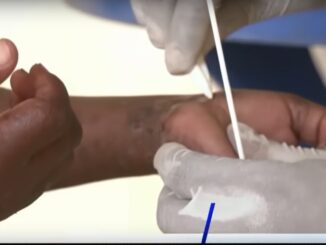
Democratic Republic of the Congo (DRC) hopes to receive its first doses of an mpox vaccine by next week, following promises from the United States and Japan to help it fight its outbreak, the Congolese health minister said on Monday.
The World Health Organization last week declared mpox a global public health emergency for the second time in two years as a new variant of the disease, known as clade Ib, spread rapidly in Africa.
In a news conference on Monday, Health Minister Samuel Roger Kamba Mulamba said that Japan and the United States had pledged vaccines to Congo.
“We’ve just finished discussions with USAID and the U.S. government… I hope that by next week we’ll be able to see the vaccines arrive,” he told reporters.
Their arrival would help to address a huge inequity that left African countries with no access to the two shots used in a 2022 global mpox outbreak, while the vaccines were widely available in Europe and the United States.
Earlier on Monday, Japan’s Ministry of Health, Labour and Welfare said in an emailed statement to Reuters that it was preparing to provide Congo with supplies of mpox vaccines and needles in cooperation with the World Health Organization and other partners.
The ministry “intends to provide as much support as possible”, Masano Tsuzuki, section chief of its division of infectious disease prevention and control, said.
Japan-based KM Biologics is one of the manufacturers of an mpox vaccine. Denmark’s Bavarian Nordic makes another vaccine, called Jynneos, for the disease. Japan holds a stockpile of the KM Biologics vaccine.
Outside clinical trials, neither of the shots have been available in Congo or across Africa, where the disease has been endemic for decades.
The global vaccine group Gavi said last week it had up to $500 million to spend on getting shots to countries affected by Africa’s escalating mpox outbreak.
“Gavi has offered to make the vaccines available and we agreed,” Congo’s health minister said.
Mpox, a viral infection that causes pus-filled lesions and flu-like symptoms, is usually mild but can kill. Two strains are spreading in Congo – the endemic form of the virus, clade I, and the new clade Ib offshoot.
The virus transmits through close physical contact, including sexual contact, but unlike previous global pandemics such as COVID-19, there is no evidence it spreads easily through the air. — Reuters





Be the first to comment